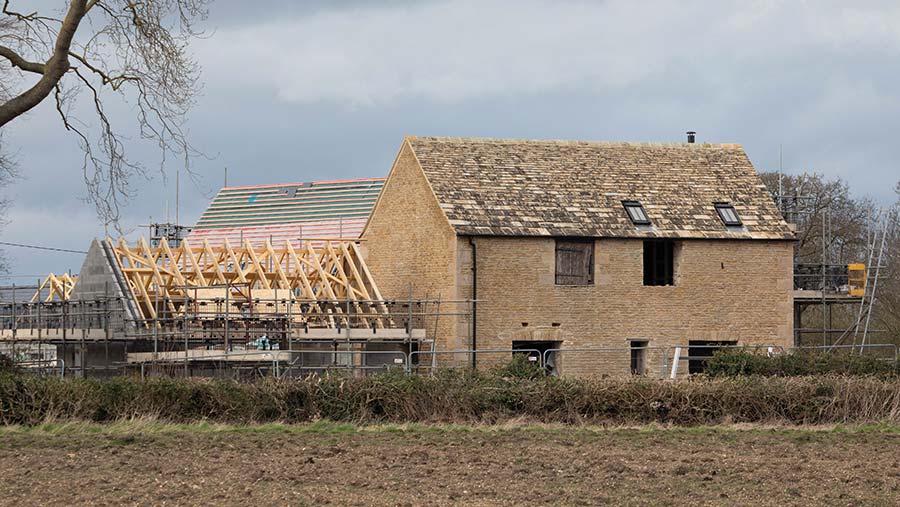Red tape cut for barn conversions under new permitted development plans
 © Tim Scrivener
© Tim Scrivener New freedoms to extend homes, convert lofts and renovate old buildings, including repurposing agricultural buildings, have been announced as part of the government’s review of permitted development rights.
Outlined by the Housing and Levelling Up secretary Michael Gove, the changes are said to support house building in appropriate places, and intend to cut red tape to enable the conversion of barns and agricultural buildings as an alternative to creating new buildings in the countryside.
Other expected outcomes include new flexibilities to extend homes and add loft conversions, and an easing of rules around extending commercial buildings.
The government has also launched a new £24m Planning Skills Delivery Fund to support local authorities to tackle backlogs of planning applications.
See also: Defra to continue badger cull if science is good, says Coffey
Mr Gove said: “Britain needs more homes to fulfil more dreams of home ownership and increase choice for renters. But they must be of the right type and targeted in the right places.
“So we must build more in the places that make sense – in our inner cities so that we protect our countryside. And we must make better use of the buildings we already have – that is why we are reviewing the rules around permitted development rights to make sure we can regenerate, build and grow.”
The news has also been welcomed by the Country Land and Business Association (CLA), which has pushed for planning reform to support and boost the rural economy.
CLA president Mark Tufnell said: “The CLA’s Rural Powerhouse campaign has been pushing for a planning system that is better resourced, smoother to navigate and enables farmers and landowners to convert barns and repurpose agricultural buildings more easily.
“We are pleased the government is beginning to recognise the direct relationship between economic growth and planning reform.
“The rural economy is 19% less productive than the national average. Closing that gap would add an estimated £43bn to the economy, so the government must now act with urgency to deliver these promises and match the ambition of rural businesses at every turn.”
